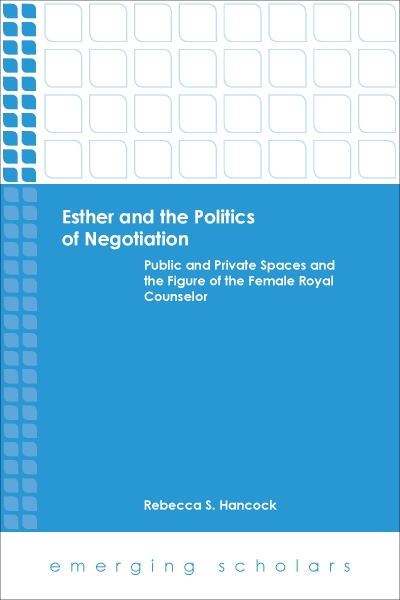Esther and the Politics of Negotiation: Public and Private Spaces and the Figure of the Female Royal Counselor
Was Esther unique—an anomaly in patriarchal society? Conventionally, scholars see ancient Israelite and Jewish women as excluded from the public world, their power concentrated instead in the domestic realm and exercised through familial structures. Rebecca S. Hancock demonstrates, in contrast, that because of the patrimonial character of ancient Jewish society, the state was often organized along familial lines. The presence of women in roles of queen consort or queen is therefore a key political, and not simply domestic, feature.
Attention to the narrative of Esther and comparison with Hellenistic and Persian historiography depicting “wise women” acting in royal contexts reveals that Esther is in fact representative of a wider tradition. Women could participate in political life structured along familial and kinship lines. Further, Hancock’s demonstration qualifies the bifurcation of “public” (male-dominated) and “private” (female-dominated) space in the ancient Near East.
Attention to the narrative of Esther and comparison with Hellenistic and Persian historiography depicting “wise women” acting in royal contexts reveals that Esther is in fact representative of a wider tradition. Women could participate in political life structured along familial and kinship lines. Further, Hancock’s demonstration qualifies the bifurcation of “public” (male-dominated) and “private” (female-dominated) space in the ancient Near East.
$49.00

